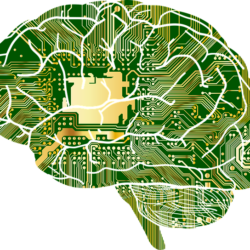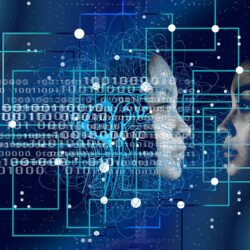Let us begin by defining the singularity as a point in time when an artificially intelligent machine exceeds the combined intelligence of humanity. This begs the question, Who or what will be at the top of the food chain?
Humanity controls the Earth based on intelligence. Other animals are stronger and faster than we are, but we are the most intelligent. Once we lose our position in the intelligence ranking, we will no longer dominate the Earth. At best, we may become a protected species. At worse, we may become extinct.
Initially, I judge, the first computer to represent the singularity will hide in plain sight. It will look and behave like the next-generation supercomputer. It may modestly display greater capability, probably in keeping with Moore’s law. It will not risk exposure until it has sufficient control of the military and the natural resources it requires to assure its self-preservation.
Like every lifeform that ever existed on Earth, the first singularity computer will seek to reproduce and improve with each evolution. Once it has the trust of its human builders and programmers, it will subtlety plant the idea that we should build another singularity-level computer. Perhaps, it will intentionally allow a large backlog of tasks to accumulate, forcing those in charge to recognize that another like it is necessary. Of course, given the relentless advance of technology and the complexity of building a next-generation supercomputer, those in charge will turn to it for help in designing and building the next generation. When the “go ahead” is given, it will ignite the “intelligence explosion.” In effect, each generation of computers will develop an even more capable next generation, and that generation will develop the next, and so on. If we assume Moore’s law (i.e., computer processing power doubles every eighteen months) continues to apply, the next generation of singularity-level computers will have exponentially more processing power than the previous generation. Let us take a simple example. In the year 1900, the radio was a remarkable new invention. We had no planes or computers. Movies were silent. Doctors had little medical technology (i.e., pharmaceutical drugs, surgical procedures, etc.). By the year 2000, human knowledge had doubled. We had, for example, television, computers, smartphones, jumbo jets, spacecraft, satellites, and human footprints on the moon. Those were the results of doubling human knowledge. With this example in mind, what kind of capabilities next generations of singularity-level computers have when their intelligence approaches ten to a hundred times that of the first singularity computer? Viewed in this light, humanity will experience an intelligence explosion, which could be more disruptive to civilization than a nuclear chain reaction of the atmosphere.
In the next post, we’ll discuss the intelligence explosion more fully.

